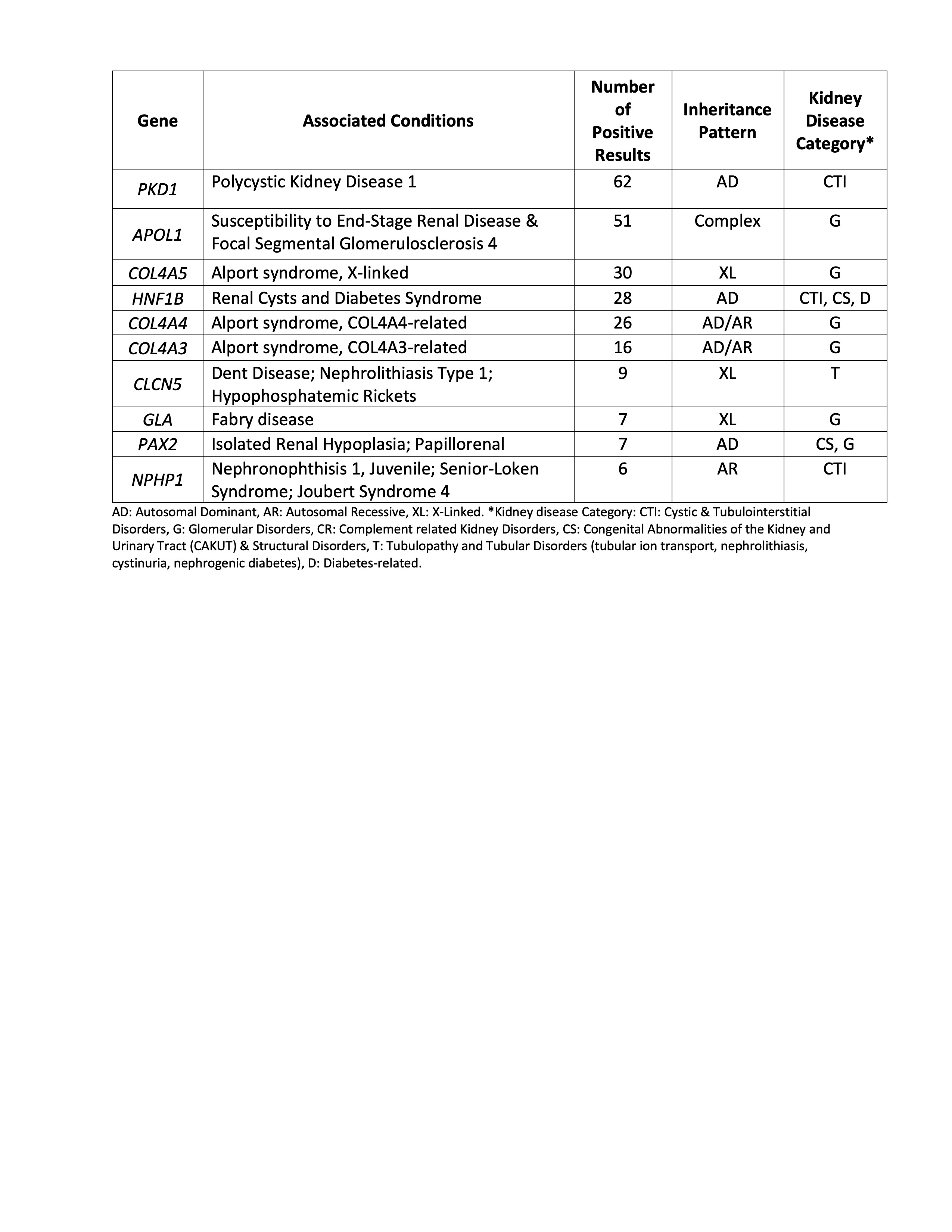Nephrology: CKD
Nephrology 2: CAKUT/Genetic Clinical and Basic Science
273 - Broad Kidney Gene Panel Identifies a Spectrum of Genetic Etiologies in a Pediatric Cohort
Publication Number: 273.251
- KB
Katya Brossart, MS, LCGC (she/her/hers)
Senior Medical Science Liaison
Natera, Inc.
Deerfield, Illinois, United States 
Sara Jandeska, MD, MBA (she/her/hers)
Medical Director
Natera, Inc.
San Carlos, California, United States
Presenting Author(s)
Co-Author(s)
Background: Genetic etiologies play an important role in pediatric chronic kidney disease (CKD), accounting for 20-30% of cases. Accurate diagnosis of genetic CKD provides management benefits across the lifespan, but these may be amplified in pediatric patients, for whom early identification of a disease can profoundly influence progression of both kidney disease and extra-renal manifestations. Adoption of broad renal genetic testing remains limited due to the scarcity of studies exploring its use as a diagnostic tool.
Objective:
Here, we analyzed results of renal genetic testing performed on a large, ethnically diverse cohort of patients evaluated by pediatric nephrologists in the United States. Analysis of a pediatric cohort receiving broad panel renal genetic testing found a 29.7% rate of positive genetic findings. The frequency of multiple genetic diagnoses and the breadth of genes implicated underscores the value of a broad-panel genetic testing for kidney disease in children. Genetic testing offers the possibility of earlier diagnosis, identification of at-risk relatives, and a reduction in morbidity and mortality to the families of pediatric patients with renal diseases. Work is underway to describe the clinical implications of the molecular diagnoses in this cohort.
Design/Methods: This cohort consisted of 1009 pediatric patients evaluated retrospectively with a 385-gene kidney disease panel (the Renasight™ test) ordered by general and transplant pediatric nephrologists between May 2020 and August 2021. Pathogenic (P) and likely pathogenic (LP) variants were reported. Positive findings included a monoallelic P/LP variant in an autosomal dominant or X-linked gene, biallelic P/LP variants in autosomal recessive genes and biallelic G1/G2 APOL1 risk alleles.
Results: Among the 1009 pediatric cases (median age 10.9 years, range: 0-18 years) for whom race/ancestry was provided, 45% were Caucasian, 24% Hispanic, 24% African-American, and 6% Asian/Other. Positive genetic findings for monogenic conditions were identified in 29.7% (300/1009) of cases. Additionally, 5% (51/1009) of cases were homozygous or compound heterozygous for the APOL1 G1/G2 risk alleles. A total of 278 positive variants were identified across 68 genes, of which 51.8% (n=144) occurred in 5 genes: PKD1 (18.8%), APOL1 (15.5%) COL4A5 (9.1%), HNF1B (8.5%), and COL4A4 (4.9%) (Table). Positive variants identified in the remaining 63 genes comprised 48.2% (134/278) of the total findings, including 31 genes in which a single positive case was identified. Multiple genetic diagnoses were reported in 7.3% (24/329) of positive cases.
Conclusion(s): 
